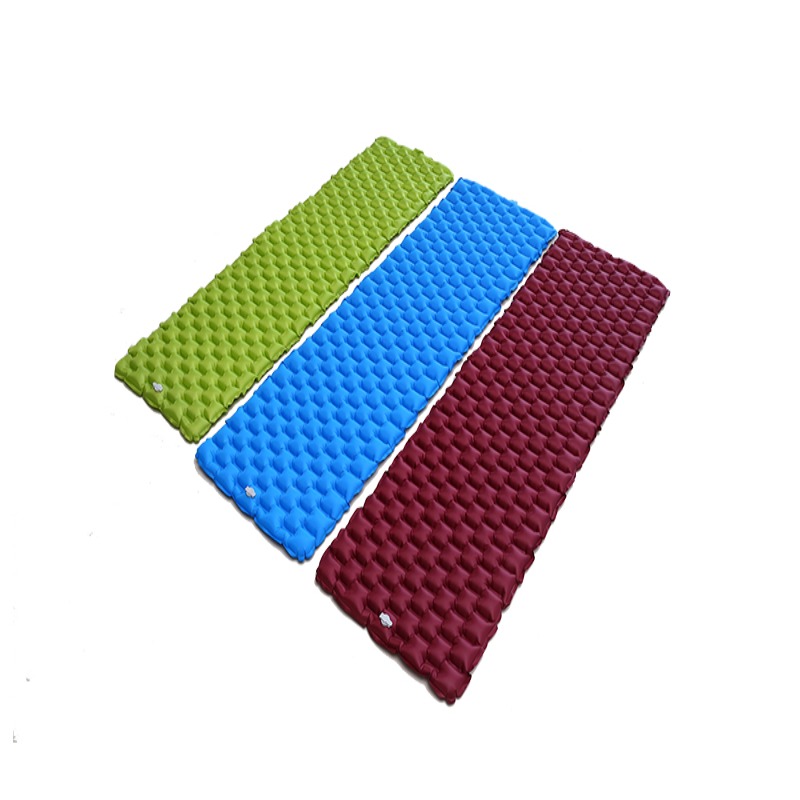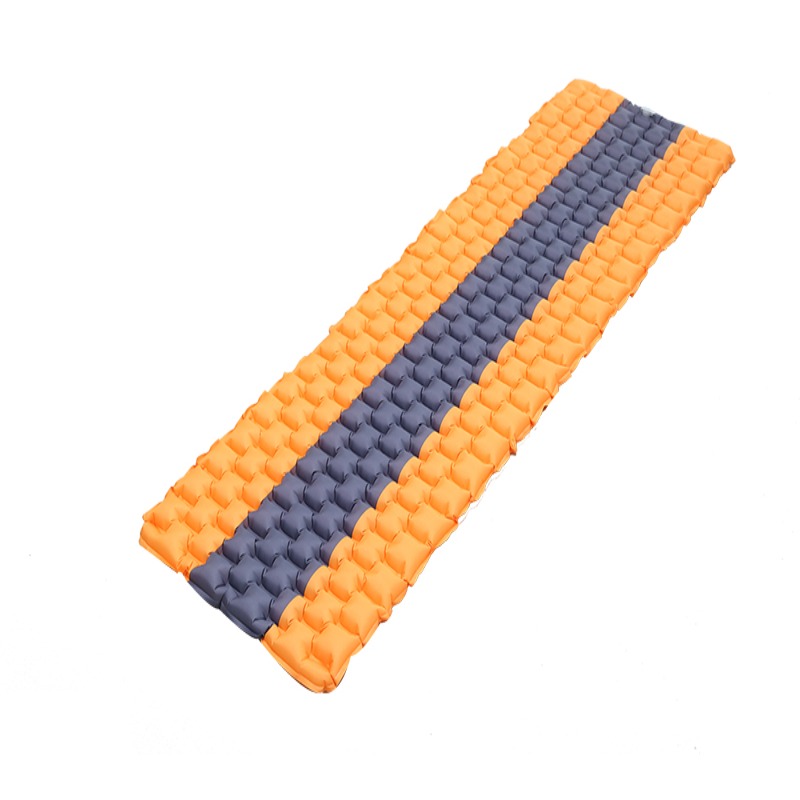Aside from the possible lack of some comfort, tent camping is a great way to enjoy nature's bounty.
You are often left to fate with the natural environment, especially in cold weather.
Winter tent camping can indeed be a challenge, especially in plateaus, mountains and other areas known for its coldness.
In fact, with enough preparation, some knowledge, and the right gear, keeping your tent warm isn't that difficult.
1. Preparation is the key:
Although, with the right gear, you can camp in almost any weather condition.
However, it's still important to keep an eye on the weather forecast so you know what weather conditions you'll be facing.
Before you go, check the weather conditions at your destination, decide what gear you should bring, and what temperatures will be at your campsite.
You don't want to be stuck in cold weather without the right winter camping gear, just double check your camping checklist and backpack to make sure you have all the gear you need before heading out.
When it comes to your campsite, choosing the right spot can go a long way in keeping you warm while camping in the winter.
If possible, choose a campsite with a natural windshield and, at the same time, make sure you are not camping under dead branches.
Also avoid valleys and other areas with falling terrain, as cold air is often trapped in these low-lying areas.
Lastly, be sure to let others know where you are camping and what your plans are for being there.
Of course, this won't help you stay warm while tent camping, but it's very important for your overall safety.
Do this regardless of the time of year or the weather to go camping.
2. Bring a suitable tent:
Winter camping tents are a must when camping in cold and snowy conditions.
Use a four-season tent that can withstand extreme weather, which is usually heavier and stronger than a three-season tent, due to reinforcement poles and stronger materials.
If you're camping in winter exposed areas, or if you experience heavy snow or wind, a four-season tent is much better than a three-season tent for those situations.
Another option for winter tent camping is the canvas tent.
Although much heavier than traditional nylon tents, winter canvas tents are better at resisting snow and wind.
In addition, the canvas tent has a good thermal insulation ability and can keep warm.
Even better, you can use a winter tent stove in most canvas tents.
3. A warm sleeping bag is a must:
More important than a quality winter tent is having a warm sleeping bag.
In fact, choosing a good quality sleeping bag based on the minimum temperature in your environment is the best way to stay warm while camping in a tent.
Look at the lower temperature rating of the sleeping bag, which is the lowest temperature the manufacturer believes the average user will be able to keep warm.
If you get too hot, open the sleeping bag to ventilate.
In terms of sleeping bag design, mummy sleeping bags are better in thermal insulation than rectangular sleeping bags, so mummy sleeping bags are a better choice for cold nights.
For extra warmth, also consider adding a sleeping bag liner, which not only helps keep the bag clean and prolongs its life, but also adds quite a bit of warmth.
Most sleeping bag liners will add more than 5 degrees Celsius to the sleeping bag's temperature rating.
Fourth, the sleeping pad is very important:
Sleeping pads aren't just for comfort, they add a lot of warmth to your camping sleep by giving you better isolation from the cold ground.
If you usually use an inflatable sleeping pad when camping, it is recommended that you pair it with a foam sleeping pad when camping in winter.
Because closed-cell foam sleeping pads generally provide better insulation than air-filled air mattresses.
When camping in cold weather, people often bring two foam pads for better insulation.
A camping bed is another option that allows you to get out of the cold ground while also circulating cold air under you.
Of course, when sleeping in a camping bed, it is also recommended to use a foam sleeping pad to achieve better thermal insulation.
One of the keys to staying warm when camping in a tent is to pay attention to the underside of your body, between your body and the ground, the better the insulation on the ground, the warmer you'll sleep.
5. Insulate your tent:
It's a bit of a hassle, but insulating the tent in cold weather is necessary.
First, clear snow from the ground, if your tent is placed directly on the ground rather than on the snow, it will retain more heat.
Remember, small tents are easier to keep warm, and the smaller your winter tent, the better.
A foam sleeping pad is a must, but you can also lay out a blanket, rug, or even a foam pad like a yoga mat to completely insulate the floor.
Then, get outside the tent, the best winter tents will have a full-coverage tarpaulin that not only blocks the rain and snow, but also slightly improves the insulation.
If there is wind, the heat dissipation of fat will be accelerated, and it is necessary to take some measures to prevent the wind.
For example, in thick snow, you can build a snow wall to block your tent from the wind.
Another tent insulation tip is to keep all your gear on the edges of the tent and place excess clothing, backpacks, etc. around the tent to further increase insulation.
For maximum insulation, canvas tents are again recommended, which provide better insulation than the best nylon winter tents.
6. Pack warm clothes:
As we mentioned in the previous article about the dress for hiking and camping in winter, the principle of layered dress is very important.
The basic layer of clothing must be made of breathable and hygroscopic materials, polyester or nylon is a good choice.
For a warm middle layer, wool or polyester is the best choice. This layer is the insulating layer.
Next comes the outer layer. The outer layer of winter clothing should consist of a waterproof, breathable top coat and waterproof and breathable trousers. This layer, which blocks rain, snow or wind, keeps the inner layer warm and dry.
The idea behind layering is that you can add or remove one or more layers as needed.
Be sure not to go to bed with wet clothes, which can cause frostbite, hypothermia, or other serious problems.
Wear a dry base layer made of synthetic fibers or wool and burrow into your sleeping bag, which will greatly help keep you warm while camping in a tent.
7. Portable tent heaters are useful:
Most winter campers really enjoy using a portable tent heater when camping in the winter.
Portable heaters can be very helpful in keeping warm in cold weather, especially when it's cold at night.
Some people use their tent heaters in their tents throughout the night, while others prefer to use them before going to bed and after waking up.
Even with a tent heater, your tent is unlikely to hold heat for long.
Unless you have a very well-insulated tent, the heater can only generate heat when it is in use.
Another option is a tent wood stove.
However, these portable wood stoves are only compatible with certain tents, so make sure your stove is suitable and safe to use with your tent before choosing.
Of course, there are plenty of other things you can do to keep warm while camping in a tent.
This includes camping members sleeping closer, using a hot water bottle at night, eating high-calorie snacks before bed, and warming up before entering a sleeping bag, among other things.
Another thing to remind is, don't sleep with your head buried in the sleeping bag, that is, don't breathe in the sleeping bag, this will produce condensation water, which will eventually make your sleeping bag lose its insulation effect.

 简体中文
简体中文 English
English 日本語
日本語 Español
Español Deutsch
Deutsch











